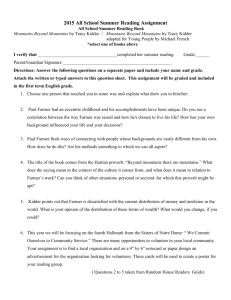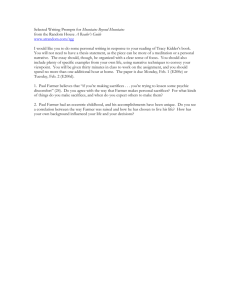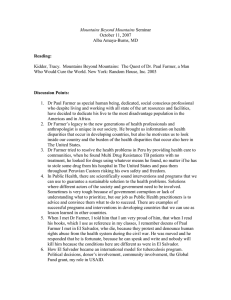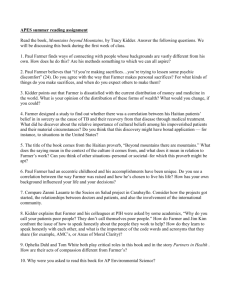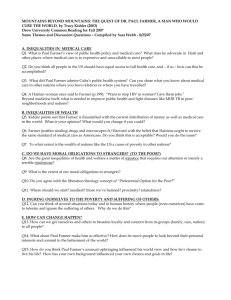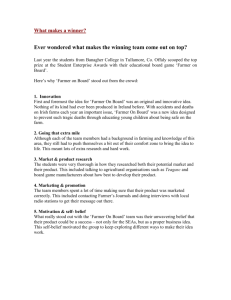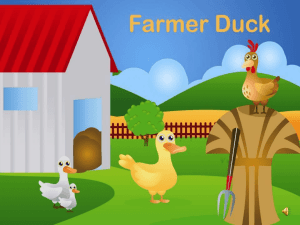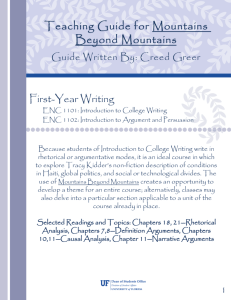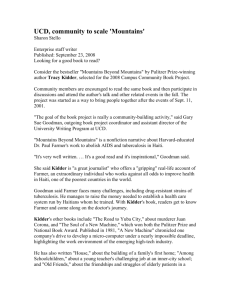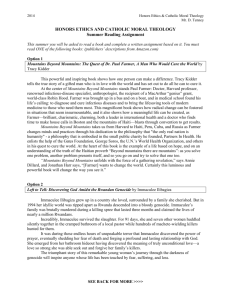Carleton College Common Reading Fall 2007
advertisement
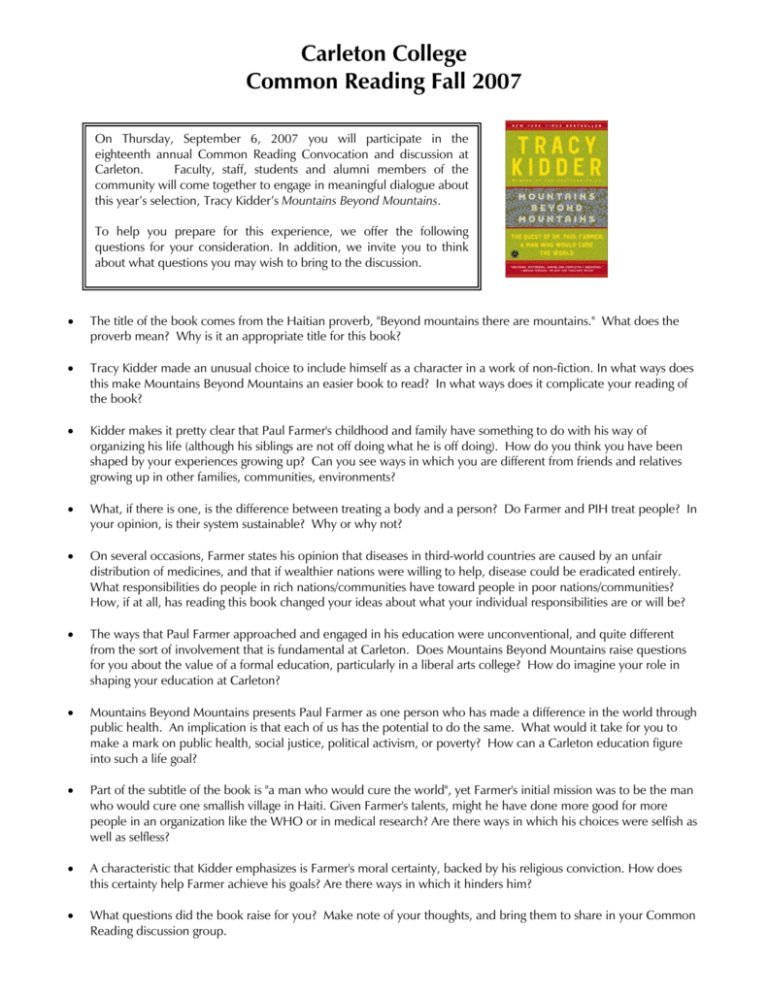
Carleton College Common Reading Fall 2007 On Thursday, September 6, 2007 you will participate in the eighteenth annual Common Reading Convocation and discussion at Carleton. Faculty, staff, students and alumni members of the community will come together to engage in meaningful dialogue about this year’s selection, Tracy Kidder’s Mountains Beyond Mountains. To help you prepare for this experience, we offer the following questions for your consideration. In addition, we invite you to think about what questions you may wish to bring to the discussion. • The title of the book comes from the Haitian proverb, "Beyond mountains there are mountains." What does the proverb mean? Why is it an appropriate title for this book? • Tracy Kidder made an unusual choice to include himself as a character in a work of non-fiction. In what ways does this make Mountains Beyond Mountains an easier book to read? In what ways does it complicate your reading of the book? • Kidder makes it pretty clear that Paul Farmer's childhood and family have something to do with his way of organizing his life (although his siblings are not off doing what he is off doing). How do you think you have been shaped by your experiences growing up? Can you see ways in which you are different from friends and relatives growing up in other families, communities, environments? • What, if there is one, is the difference between treating a body and a person? Do Farmer and PIH treat people? In your opinion, is their system sustainable? Why or why not? • On several occasions, Farmer states his opinion that diseases in third-world countries are caused by an unfair distribution of medicines, and that if wealthier nations were willing to help, disease could be eradicated entirely. What responsibilities do people in rich nations/communities have toward people in poor nations/communities? How, if at all, has reading this book changed your ideas about what your individual responsibilities are or will be? • The ways that Paul Farmer approached and engaged in his education were unconventional, and quite different from the sort of involvement that is fundamental at Carleton. Does Mountains Beyond Mountains raise questions for you about the value of a formal education, particularly in a liberal arts college? How do imagine your role in shaping your education at Carleton? • Mountains Beyond Mountains presents Paul Farmer as one person who has made a difference in the world through public health. An implication is that each of us has the potential to do the same. What would it take for you to make a mark on public health, social justice, political activism, or poverty? How can a Carleton education figure into such a life goal? • Part of the subtitle of the book is "a man who would cure the world", yet Farmer's initial mission was to be the man who would cure one smallish village in Haiti. Given Farmer's talents, might he have done more good for more people in an organization like the WHO or in medical research? Are there ways in which his choices were selfish as well as selfless? • A characteristic that Kidder emphasizes is Farmer's moral certainty, backed by his religious conviction. How does this certainty help Farmer achieve his goals? Are there ways in which it hinders him? • What questions did the book raise for you? Make note of your thoughts, and bring them to share in your Common Reading discussion group.
